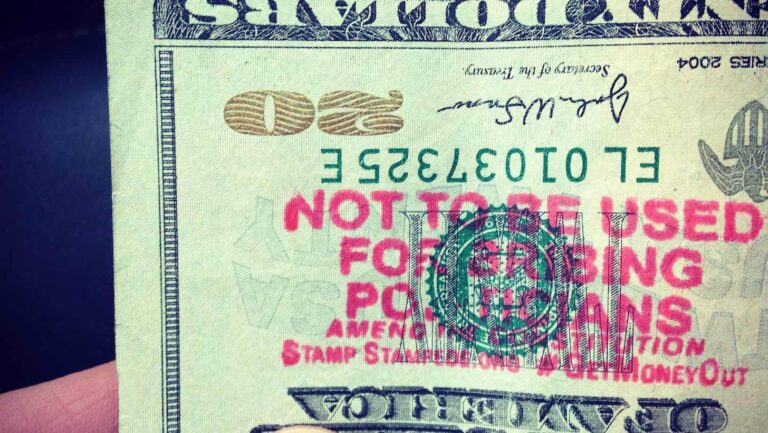On the surface, Secretary of State Maggie Toulouse Oliver’s proposed changes to campaign finance reporting rules appear to be a wonky topic.But to some outspoken opponents it’s a free speech violation. Burly Cain, the New Mexico state director of Americans for Prosperity, compared the proposed changes to forcing an 80-year-old woman to “wear an armband to say what she believes on her arm.”Officials with the secretary of state’s office say they are simply attempting to update outdated sections of the state’s Campaign Reporting Act that are no longer legally valid after high profile court decisions. This includes the state law definition of “political committee,” which is broadly defined as two or more people who are “selected, appointed, chosen, associated, organized or operated primarily” for influencing an election or political convention.This definition was found to be “unconstitutionally broad” in New Mexico Youth Organized v. Herrera, a 2009 court case, according to Secretary of State Chief Information Officer Kari Fresquez.“That’s why it’s necessary to find a compliant framework,” Fresquez said.Under the current rules, all groups spending $500 or more for a “political purpose,” again broadly defined as influencing an election, during an election cycle must register with the secretary of state’s office and report their donations and expenditures.Viki Harrison, the executive director of Common Cause New Mexico, which is advocating for Toulouse Oliver’s proposed rule changes, said the current definition of political committee covers organizations who may spend on political advertisements but whose express purpose isn’t political campaigns. These would include organizations like unions and business groups like the chamber of commerce.Toulouse Oliver’s proposed changes would require any organization without the express purpose of spending money on political campaigns to disclose funding of their political advertising if it exceeds $1,000 in an election cycle. The disclosures would include the name of the person who made the independent expenditure and the vendor the organization made the expenditure to. This could include purchasing TV and radio ads or the money spent on campaign mailers.Under the proposed rules, if any such organization spends less than $3,000 on political advertising, it must disclose donors who spent $200 or more during that election cycle—but only if these donations were earmarked specifically for a political purpose. Once that organization’s political spending goes above $3,000 during an election cycle, it could choose one of two things: establish a separate bank account limited to political donations and disclose every donor who’s given more than $200 to it or report out of their general banking account all donors who have given more than $5,000, unless they explicitly marked the money not be used for political advertisements.These disclosures would not apply to someone who donated to a union or business group but wrote that their money couldn’t be spent on political advertisements.“This is for people who have been specifically solicited for electoral work,” Harrison said.If Toulouse Oliver doesn’t put the new rules in place, Harrison argued that the secretary of state and the state’s attorney general will need to enforce updated rules on a piecemeal basis whenever challenges citing the Campaign Reporting Act are filed to their offices.“That’s what’s so perplexing about the opposition,” Harrison said. “In order to enforce an unconstitutional law, they’re going to have to go through court determinations on this and go by a case-by-case basis.”Harrison added that the proposed rules are narrower than current law.But Cain argued that the rules will force disclosure of people who donate to organizations but want to remain anonymous, violating their First Amendment rights. He said this practice goes against precedent set in NAACP v. Alabama, a landmark 1958 civil rights case where the Supreme Court decided the state of Alabama could not subpoena the National Association for the Advancement of Colored People for its membership lists.Earlier this year, Gov. Susana Martinez vetoed a bill sponsored by Senate Majority Leader Peter Wirth, D-Santa Fe, and state Rep. James Smith, R-Sandia Park, that would have enshrined Toulouse Oliver’s proposed rule changes into state law (Toulouse Oliver’s changes would go into the state administrative code, which essentially interpret state statute).In her veto message, Martinez wrote that the bill would have led to “unintended consequences” and forced groups “like charities to disclose the names and addresses of their contributions in certain circumstances.”Cain echoed these arguments and said they also apply to Toulouse Oliver’s rule change proposals.“There are dramatic concerns about free speech and protecting it in what they were doing, which is why it was wise for Martinez to see the attack on free speech,” Cain said.Toulouse Oliver’s office recently held public hearings on the rule changes in Santa Fe, Albuquerque and Las Cruces. Aside from arguments in favor and against, others made suggestions like narrowing certain definitions.“We received a number of questions and suggestions on clarification to take what’s there and make it more meaningful,” Fresquez said.John Blair, the deputy secretary of state, said the office received 327 comments during the public comment period. Toulouse Oliver may make changes to the proposals in the near future, with the goal of going into effect by Oct. 3 to cover a campaign reporting period starting around that time.A court challenge by opponents is possible, if not probable.“I think there are very good grounds for a legal challenge,” Cain said.




